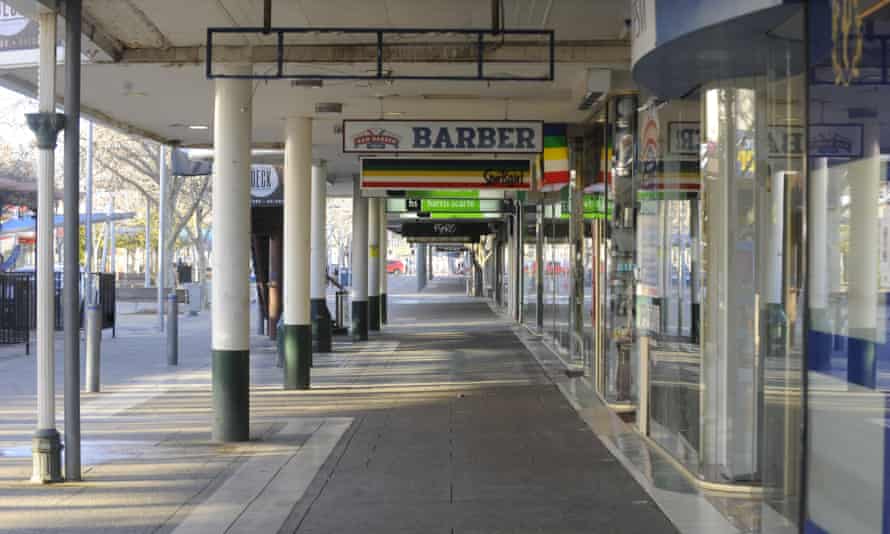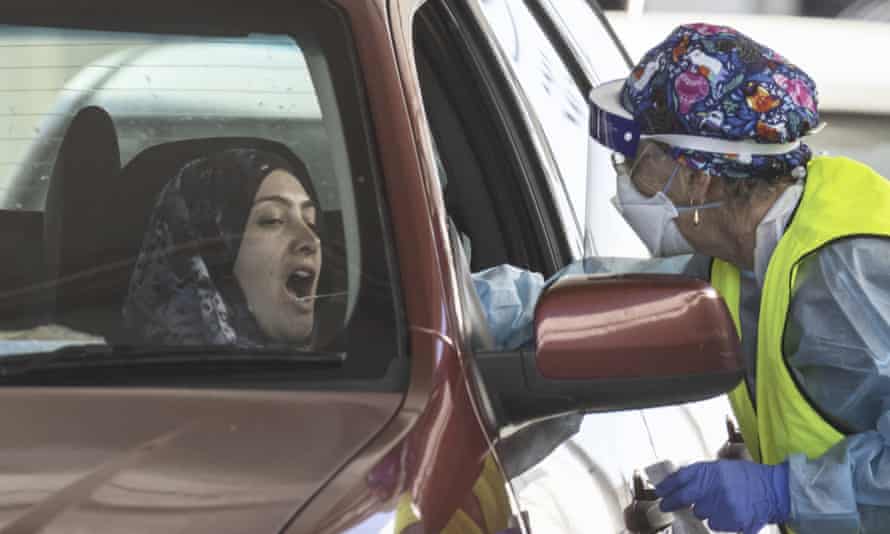
The Goulburn Valley highway, which stretches north-south through Shepparton, is usually busy with an endless rumble of trucks a constant passing through the city centre en route from Brisbane to Melbourne.
In previous lockdowns, the drop in traffic and closure of shops and schools had been noticeable, but not acute. People still lined up for takeaways on Saturday mornings, children still raced their bikes down by the Goulburn river, where – under lacing gum trees and yellow wattle – Covid-19 felt 200km away, a city problem, not something that touched the regions.
Now, Shepparton’s outbreak has swelled above 75 cases, seeding into nearby Kyabram, Echuca and Merrigum, and the Goulburn valley has unwittingly found itself at the centre of the most significant Delta outbreak in regional Victoria. A third of Shepparton’s roughly 60,000 people are locked in their homes in isolation and the roads, as well as the supermarkets and cafes, are empty and quiet.
Shepparton has a thriving CALD community represented by dozens of backgrounds and language groups, beginning with the first refugees arriving in the 1990s. The town also has the largest Indigenous population in regional Victoria.
Hussam Saraf, a cultural officer at Greater Shepparton Secondary College, says the school’s diverse community is on the brink. Access to food relief and essential supplies for families swept into 14 days of quarantine has been extremely difficult to coordinate, he says.
“It surprised everyone,” Hussam says. “Nobody had time to do shopping, everyone was running to school to pick up their kids.
“Now we tell them, you need to isolate for 14 days, and if you missed the first two or three days of testing your 14 days starts again.”

With click and collect services reporting six-fold increases in demand, some families say they’ve been stuck waiting up to five days for groceries.
Shepparton organisations have rallied together – GV Cares, established by the Lighthouse Foundation since the first case was detected has been distributing essential items alongside the ADF and FoodBank – but Hussam says it’s “not enough”.
“Even if people can get food in three or four days, what are they going to do until then?” he asks.
“Some families have big numbers, I’ve spoken to a man with 10 people in the house – eight kids, and two of them need formula.
“Supermarkets are under pressure, so much of their team is isolated.”
Hussam tells me he has been working until midnight for the past week translating Department of Health documents into Arabic, written and via audio.
Volunteers throughout Shepparton’s multicultural community have been doing the same, outside school and work hours.
“Refugees who haven’t been in Shepparton long have been terrified,” he says.
“They haven’t even settled down yet. We’re trying to give these people critical access to information in their own languages.”
Hussam wants the escalating situation in Shepparton to be declared a state of emergency. On Thursday, the Victorian premier, Daniel Andrews, announced the state’s emergency management deputy commissioner would soon arrive – “no different to during a bushfire or a flood”.
Hassam says: “multicultural families have been in situations in camps, they’ve been in really bad situations, they’ve seen this before.”
“They’re going to do whatever they can to keep their kids safe. That could cause someone to break the law and leave their house just to get some food.”
Primary Care Connect has been working alongside local hospital GV Health and volunteer organisations on the relief effort.
Refugee support worker for Primary Care Connect, Declo Bisimwa, says he has been frantic assisting his Congolese community all week, as “most families” are in isolation and struggling to access food.
“There are families including single parents with more than three children from CALD communities who are still unable to get support or put food on their tables,” he says.
“Language barriers and a lack of relevant information are issues for these newly arrived families.”
Declo has been a key facilitator of Shepparton’s Covid-19 information sessions that have provided targeted health support for Shepparton’s multicultural community.
Rumbalara Cooperative – Shepparton’s Indigenous health service – has been doing the same.

Rumbalara Health and Wellbeing executive Shannon Drake says it’s a relief nobody in Shepparton’s large Indigenous community has tested positive.
About 1,100 test results have been administered by Rumbalara since the Delta outbreak began, and the drive-through clinic has also posed an opportunity to deliver health messaging about its vaccination program.
“It’s been great to be able to talk to people and have a chat, people are still unsure whether they need to isolate,” she said. “We can address their concerns. There’s anxiety … but we can provide a personalised message, to break it down and use our local language.”
Sign up to receive the top stories from Guardian Australia every morning
Drake has been particularly heartened by how Rumbalara’s extended community has rallied to uplift each other despite times of fear and uncertainty.
On Friday morning, she received a care package dropped at her front door by a friend to say “we’re thinking of you and know the hard hours you’re working”.
“It’s what we’ve done so well, the whole way through, just supporting each other,” she said.


